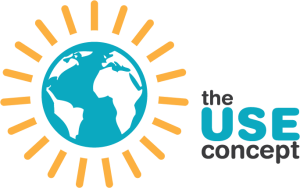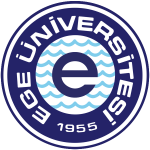Our Partners
Aristotle University of Thessaloniki
Public University
GREECE
The University of Thessaloniki was established in 1925 and operated in 1926. In 1956 it was renamed as Aristotle University of Thessaloniki. Aristotle University of Thessaloniki (www.auth.gr) is a public university. AUTh is the largest University in Greece covering all disciplines. There are 41 Faculties and Schools in the Aristotle University of Thessaloniki offering all kinds of studies. Every Faculty/ School offers an undergraduate degree, and two postgraduate degrees (2nd cycle and PhD).
The university offers education to 70,000 graduate and postgraduate students and, at the same time, gives the opportunity to 4,000 scientists, researchers and academics to work in their fields, to cooperate with other universities and public and private bodies, and to present the results of their research activity to the international scientific community.
The Aristotle University of Thessaloniki, Office of the Research Committee, has a lot of experience in managing EU projects. A.U.Th. also offers Lifelong Learning courses covering a wide variety of fields of study (see website http://www.auth.gr/en/diaviou), as well as summer schools and other short cycle study programmes. It is widely recognized as a vibrant center of learning which draws its inspiration from a long tradition of academic achievement. This can be supported, among other factors, by the fact that so much in science, as in the arts and divinity, medicine and technology, it prides itself in its international role. The University has been actively participating in the Erasmus Programme since 1987, accounting approximately one fourth of the total Erasmus mobility in Greece in the frame of Student for Studies Mobilities as well as Staff for Teaching Mobilities. In 2012 the Aristotle University of Thessaloniki was awarded the Diploma Supplement Label from the European Commission. The Diploma Supplement was designed by UNESCO and the Council of Europe and was adopted by the European Parliament in 2004 (Decision No 2241/2004/EC on a single Community framework for the transparency of qualifications and competences).
The USE Concept
Service’s Private Organisation
PORTUGAL
The Use Concept, created in November 2010, is a company with experience and positioning in the national market in the scope of Geographic Information Systems, Land-use Planning and Spatial Planning. It assumes as its main objectives the conceptualization, implementation, and dissemination of theoretical and applied research in their fields of work. Our services are multidisciplinary processes that meet the needs of organizations, with the objective of optimizing the processes and the sustained growth of each organization, contributing to the sustainability and competitiveness of each one. This strategy is based on areas of Geographic Information Systems, Mapping and Spatial Development and Environmental Development.
The impact on organizations and the added value to our customers business through our services is reflected in increased decision, business, and operational effectiveness, mirroring a greater and more efficient return on investment.
The development of The Use Concept as a learning organization, as well as the constant innovation in the processes and procedures we develop, are the basis of our ideology, which is based on learning and continuous improvement. In this way, we can always give the best response to our clients’ requests, thus increasing their satisfaction. With a constant change in the market, the territory and the customers, there is, necessarily, a pressing need for updating and knowledge of them. Carrying out market studies tailored to the needs of each case study, we have obtained a better reading of the market reality. This analysis is reflected in the best result for our clients, so they can make decisions based on the acquired knowledge.
AidLearn
Service’s Private Organisation
PORTUGAL
AidLearn Training, Research-Action, and Consulting Company has been operating nnationally and across Europe since 2003, specializing in the design, implementation, and evaluation of studies, projects, and training activities that promote individual and organizational development. As a certified training entity by DGERT (Directorate General for Employment and Labour Relations) in various educational and training areas, we are dedicated to contributing to expertise development by building a learning organization focused on equal opportunities.
We offer innovative services tailored to the specific needs of organizations and individuals, with a particular focus on upskilling teachers at all educational levels. Our main areas of intervention include the diagnosis of learning needs, and the conception, delivery, and evaluation of learning activities, methods, and tools. These encompass face-to-face and blended formats, projects, and research studies in the following fields: teachers upskilling; digital literacy (including artificial intelligence); health and safety; social services; environment; multiculturalism; production of multimedia educational resources; intergenerational learning, active citizenship, and sustainable environment.
AidLearn boasts extensive experience in the design and development of studies and projects, often from an action-research perspective, aimed at fostering innovation in education and training systems. This approach promotes organizational learning and diversifies training offerings. We have successfully taken on roles as both promoter/coordinator and partner in national and international projects.
EGE University
Public University
TÜRKIYE
Cyprus University of Technology
Public University
CYPRUS
The Cyprus University of Technology (CUT) was founded in 2007 Limassol, Cyprus. The Department’s main role is to generate (through its research programs) and disseminate (through its educational programs) the necessary knowledge and technology required for developing and promoting a modern and sustainable bio-economy in Cyprus. To accomplish the above task the department offers an undergraduate program with a specialization in three basic areas, i.e. Crop Science & Technology, Animal & Dairy Science, and Food Science & Technology, a MSc degree in Agricultural Biotechnology, and a Doctoral program. Although the department has three specialization areas, the laboratory infrastructure is shared among all Faculty members.
Cyprus University of Technology (CUT) is the only technological university in Cyprus. Furthermore, the Department of Agricultural Sciences, Biotechnology and Food Science is the sole department in Cyprus that concurrently supports research on the three pillars of Agriculture: Plant science, Animal Science and Food technology. Despite being a relatively new established University (2007), metrics prove its excellence in terms of metrics and educational impact, since it is regularly among the leading universities in global ranking lists (first in Cyprus and 59th globally, among the Universities established under 50 years; Times Higher Education World University Rankings).




